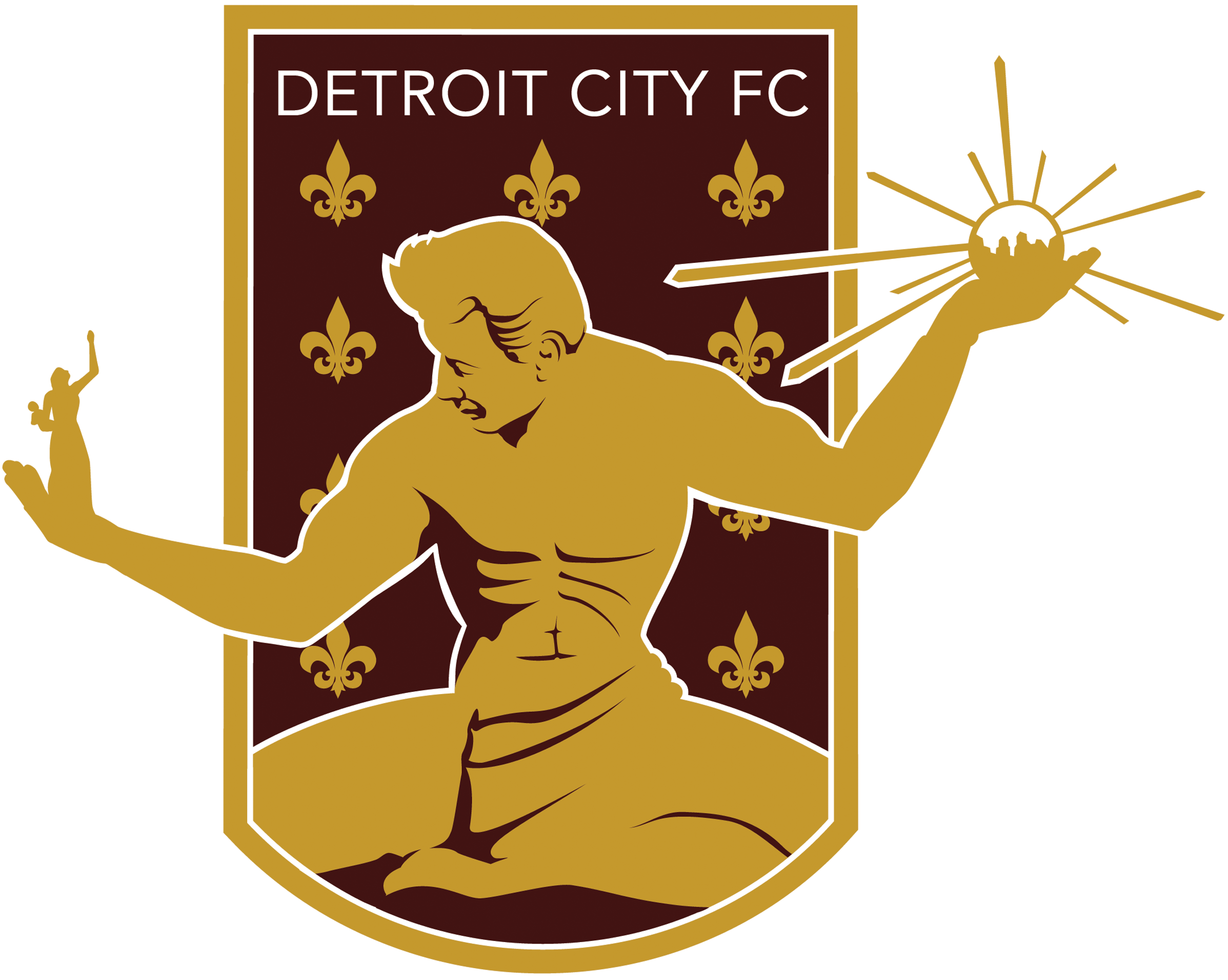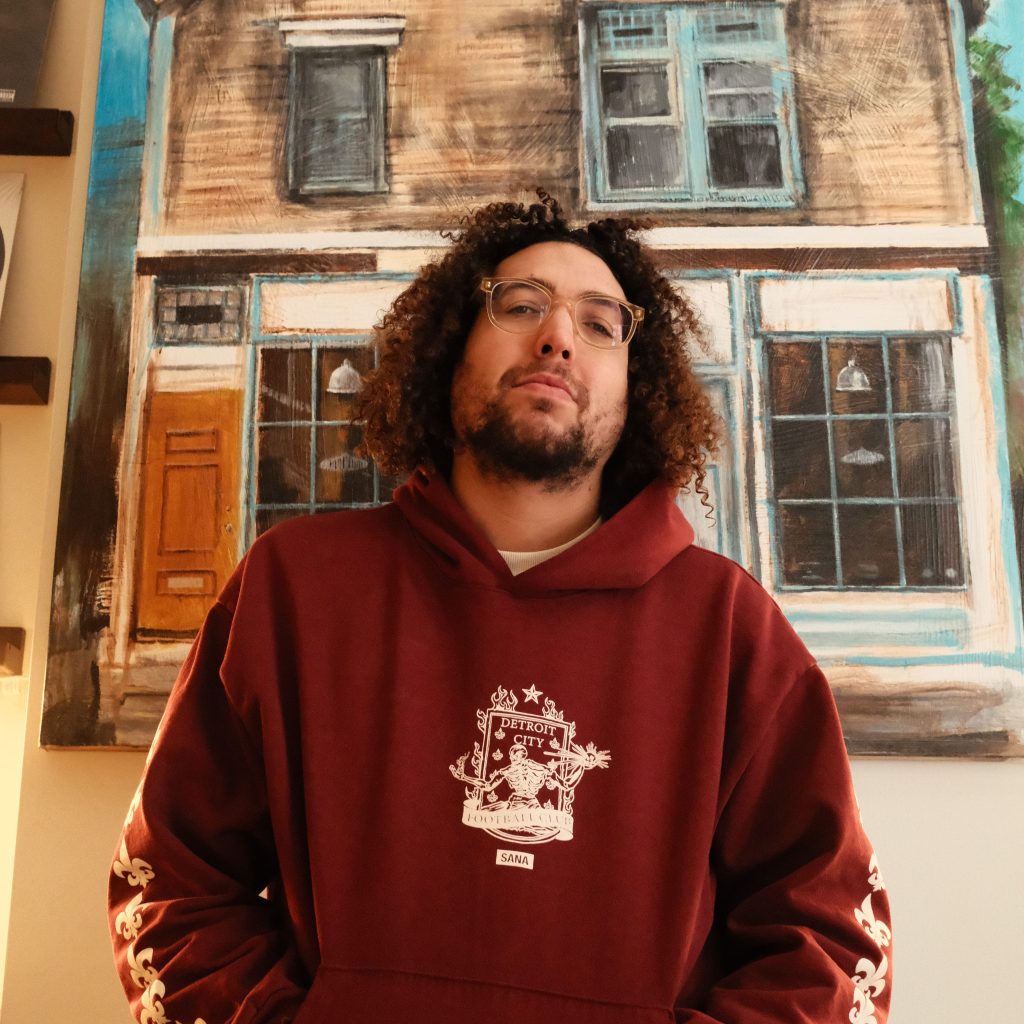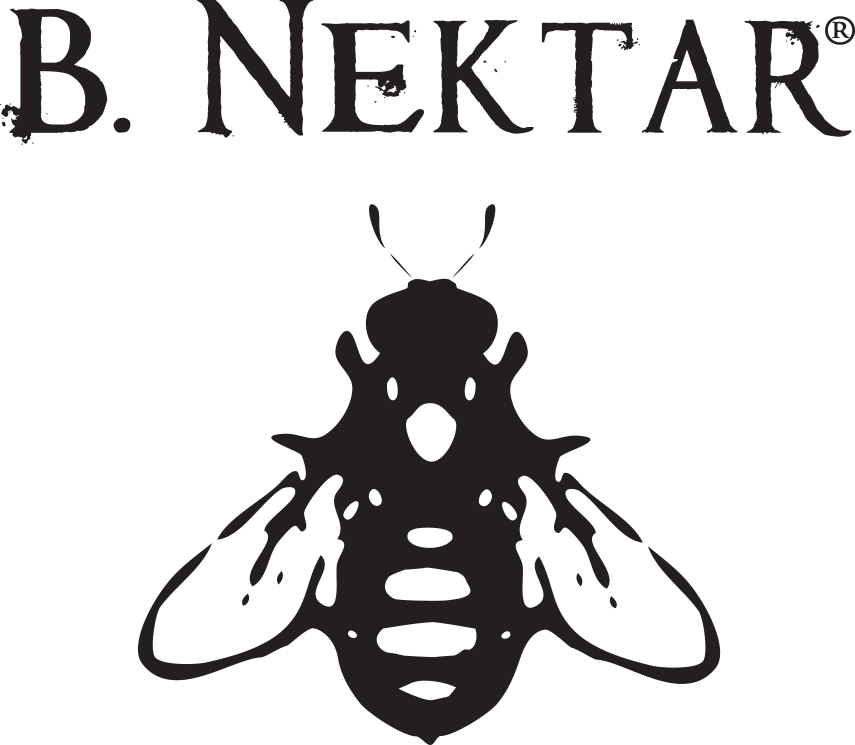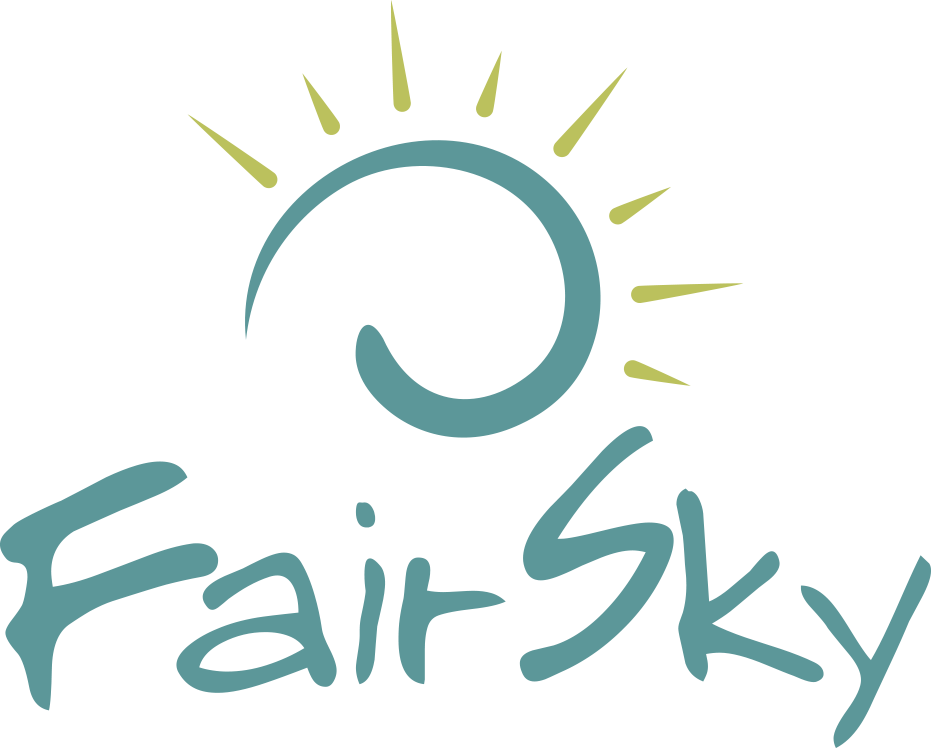The first thing you notice is the sound. It doesn’t just spill into the street; it breathes, it beckons. The bounce of Moodymann, the transcendence of Theo, the sultriness of Marvin, the heartbeat of Dilla. The music doesn’t just play—it moves, pulling you down Broadway. And as you follow the rhythm, you arrive at a space that speaks for itself.
Across the front awning, in bold yellow letters, it reads: BLACK LIVES MATTER—not just a statement, but an unwavering truth. While most businesses use their signage to sell you something, Paramita Sound offers something deeper. Their outward image isn’t about branding; it’s a reflection of what waits inside—a space where sound, soul, and community converge.
Paramita Sound was born in 2014, the brainchild of Andrey Douthard, a Detroit native who grew up with a strong love for music, football, and the city he calls home. When Andrey first envisioned “Paramita”, a Sanskrit word that means the cultivation of perfection or always working, he was carving out a space for himself—a place to immerse in the sounds that shaped him. But more than a decade in, he sees it differently. What started as personal has become communal, a hub where music does more than just play—it connects.
“I guess with the work that I do at Paramita, the easiest way to describe it is, it’s like bridge building and we use music as a vehicle to build bridges between generations. That’s one of the special parts about our music community here. To connect younger generations to older generations, I’m 38 – so I kind of live in the middle of multiple generations.”
What started as a self-described “underground” or “DIY” space has grown into something bigger—earning recognition from USA Today as one of its Bars of the Year in 2024. But before the accolades, before Paramita became what it is today, its first home was a two-story abandoned house in West Village—no running water, speakers taped to the ground, and not a budget in sight. The space reflected the moment: Andrey was just getting started, building community-centered music programming from scratch.
But none of that ever felt like a setback. If anything, it set the tone. Week after week, people showed up, filling the space with energy, sound, and something that couldn’t be measured in dollars. It was never about polish—it was about purpose. And that foundation, built in those early days, continues to shape how Paramita grows and evolves today. When asked about how Paramita has evolved since its inception, Andrey spoke about how change is necessary when attempting to grow.
“So many different walks of life came and made space and I think it was still identifiably, maybe like a hip hop space. And I think if you look at where Paramita is now, it’s not just that – it’s so much more than that. It’s a space for young black people. It’s a queer space. It’s a place where normies feel comfortable. That’s not what the old shop was. The old shop set the precedent for how we want to behave in this kind of sandbox way. But look man, the people that are coming to a Tigers game would’ve never found the old spot, you know what I mean? They would’ve never known that this culture existed.”
“These kinds of spaces are generally ephemeral. These ones that tap into subculture in its deepest sense. They don’t get the opportunity to live for a decade and we couldn’t have lived for a decade in that space. But one thing that is true – and we’ve proven it in this location – is that new development and subculture have a place together. And that subculture doesn’t have to be subjected to being underground or on the outskirts of things. And that’s how we don’t get completely appropriated in the things that we build and develop and don’t end up getting commodified by someone that’s not in our communities. We have to be out front with it.”
Spaces like Paramita aren’t always built to last—but the moments created within them do. Long after the music fades and the night ends, the feeling stays with you. You step into a room filled with love, light, and joy, and when you leave, you carry those things with you. You see faces that look like yours, voices that echo your own, styles that feel familiar yet fresh. In that reflection, you don’t just witness the culture—you become part of it, woven into the fabric of Detroit’s music and nightlife scene. At Paramita, community isn’t just a guiding force—it’s the ultimate destination.
“It has to be the goal. I’m really staunch on this point about the word community. There’s so many places that start to say, ‘Hey, we’re going to be a community for this.’ Those are your intentions. Intentions around building community have to be backed with action. So we don’t have a space, and then we’re a community. We have to set the intention and then we have to give it space to grow.”
Andrey understands the weight of his responsibility—to hold space for Detroit’s Black, Brown, and queer communities in a way that is real, intentional, and lasting. In 2025, when terms like social justice, gender equality, and human rights are often reduced to buzzwords, repackaged as marketing tools under the guise of “community,” he pushes beyond the performative. He knows that real change isn’t about what you say—it’s about what you do and how you do it.
Rather than asking people to buy into Paramita through an abstract idea of community, Andrey focuses on building it—creating a space and experiences that speak directly to those who need them most. Because for him, community isn’t a concept. It’s a commitment. He even applies this thinking to his support for Detroit City FC.
“We have to set the intention and then we have to give it space to grow. And I think that’s really something that can be taken from what happened with DCFC is that there was a need for that outlet, for so many fans of the sport – something that was their own. Not just like we’re fans of teams from around the world, but man, where’s ours? And what happened inside of that was something I don’t think anyone ever expected.”
Andrey became a supporter of Detroit City Football Club in 2012, the year the club was founded. When I was speaking about my own connection to the club which started in 2017, he was quick to say,
“But before that, over at Cass Tech, you know what I’m saying? I was a season ticket holder the first two seasons – still got my jersey with the 12 in the back of it.”
Andrey has seen the club grow from just an idea into a tangible community, which for him is a beautiful thing. Not only as a lifelong Detroiter who loves the beautiful game, but also as a father who hopes that the sport of soccer can work as a bridge for his son to grow and learn.
“We all want to watch and see our kids grow and be better at the sport. But I think so many of us are here for our children to be put in a structured environment in which they have an opportunity to build more connections and I think that’s why I’m at DCFC. What I’ve witnessed thus far is that I love that there is an organized place and that my son is playing with a rainbow of human beings. That patchwork of what his team looks like. It’s the filter for everything. It’s the filter for my business, it’s the filter for the school I’ve chosen for him. It’s the filter for the programs that he exists in outside of our home. And I’m proud to be a part of the DCFC family. I’m proud to have my son involved right now. I hope they continue to make us proud to have our children a part of it.”
But even with that understanding of growth and change, we couldn’t ignore the barriers that still exist within soccer—especially in American soccer. The sport too often feels inaccessible to certain communities, not because of a lack of interest, but because of structural and cultural obstacles that push them to the margins. True change will only come when these communities see themselves reflected—when the culture embraces their presence, and programming is intentionally designed to address the challenges they face. Until then, the beautiful game remains broken.
One thing Andrey and I share is our love for Arsenal Football Club. Fittingly, the story of how we first met is a perfect blend of the subcultures that weave through this conversation. It was 2023, and I was back home from Chicago. That night, I saw one of my favorite DJs, Ash Lauryn (also a Detroit native), spinning at Marble Bar.
“- it was at the Deon Jamar show over at Marble Bar when they did that all night party. And I was there at 6AM, just by myself listening to the music. But I guess in a sense the bridge that was built together for us was football because I might’ve had something relating to Arsenal, or you, and that enticed me to say something to you or vice versa.”
Detroit really is a small world, as I had no idea I’d come back into contact with Andrey as a mentor for his son and him as a mentor for me.
If you’re familiar with Gil Scott-Heron, then you’ve undoubtedly heard his iconic 1977 album Bridges—or more specifically, the powerful track We Almost Lost Detroit. The song recounts the partial nuclear meltdown at the Enrico Fermi Nuclear Generating Station near Monroe, MI, in 1966, transforming a near disaster into a lasting lesson. More than just a retelling, it serves as a call to awareness—a song created to teach truth and promote peace. In it, Gil sings:
“But no one stopped to think about the babies
Or how they would survive”
In many ways, Andrey’s work at Paramita carries the same spirit that lies in these lyrics. He understands that community isn’t just about expression or gathering—it’s about reflection, preservation, and action. But it’s also about passing the torch. He’s building bridges between the old and new, giving young artists, musicians, and creatives a space where history isn’t just remembered but lived. His work is rooted in creating opportunities for them to learn, connect, and be heard, making sure they aren’t left to fend for themselves in a city that has long been defined by resilience. Whether through music, community gatherings, or mentorship, Paramita Sound isn’t just about honoring the past—it’s about investing in the future. Andrey is making sure Detroit’s next generation doesn’t just survive, but thrives.
“We need access. One thing I’ve learned is we create the access points for all the kinds of outlets that we need, and sometimes we’re in a rare situation where our elders, our OG’s, or the people that built foundational work for us are still in our community, are still here and active, and they’re not just relics, they’re still some of the people that are pushing culture, right? Paramita is an access point to engage, to find yourself, to fall deeper in love with the music community, to hopefully fall deeper in love with your connection with music. And I think through those connections we find friendships, we can find love. We can actually put something tangible to the word “community” – which I think is a word that we use so ambiguously. So you have to build a ship for the community, you have to build a pathway to that. You have to build access to those things for them to actually flourish.”
The community that Andrey has cultivated at Paramita is similar to that of his son’s soccer team, a patchwork of diverse individuals who have come together through a shared love. And this all started with the assemblance of his team –
“When we came back from the pandemic, when I started to reach out to the community and look for people to come in and be the staff here, it was overwhelmingly black and queer human beings that wanted to be a part of this. That wanted to be inside and wanted to work. Ryan and Kesswa and Darryl Terrell and Jordan Jones. It was very intelligent, beautiful, incredible human beings that were attached to a community outside of music and they were attached to the subculture and they also were a massive part in being magnets for so many other people.”
We ended our conversation reflecting on the idea of Chosen Family—a concept that beautifully illustrates what community means to Andrey and those who have come to see Paramita as a second home. When Andrey described his team as magnets, each drawing in their own circle of loved ones, it reminded me of an ecosystem—one where energy, care, and creativity flow freely.
The space itself, Andrey, his team, the DJs—they all pour into the community, and in turn, the community pours right back into them. It’s in the little moments: greeting a familiar face from the last event, losing yourself in the music, Andrey snapping photos on his disposable camera, joining the group that just broke into the Detroit Hustle off Broadway, fingers flipping through records in quiet reverence. The people who fill the space are friends of those who work there, the DJs were once part of the crew, the photos on the walls were taken by regulars.
This cyclical exchange—of care, presence, and shared experience—creates something deeper than just a scene. It creates a living, breathing community, one that sustains itself through the simple act of showing up for one another.
“Chosen family. Sometimes it might even be more important than blood. For some people they don’t have that — doesn’t have a beautifully supportive family. They might have one parent, they might have a big one. They might have a big one that they can’t be their full selves. I think a hundred percent that this place has been a space to explore deeper parts of myself – creating different opportunities to build, to accept and embrace things that I hadn’t had access to before.”
Conversation with Andrey Douthard (Owner of Paramita Sound)
Interviewed by Maxwell Murray






















































































































































































































































































































